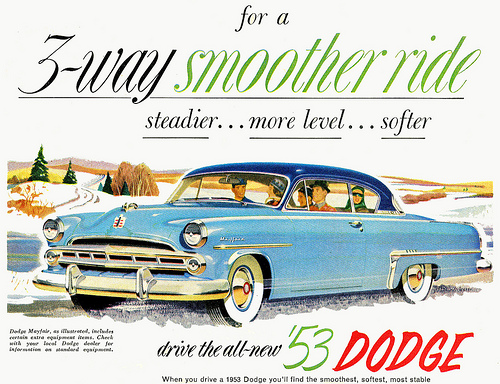I was driving to my uncle’s for Thanksgiving with my dad, my mom, and my wife; I dropped a knowledge bomb on my parents somewhere in that ride that literally seemed to give my father pause. Interested in what it was? Here we go:
- You can argue — and you wouldn’t be 100 percent right, but you’d be in the ballpark — that the twin engines of American growth after WW2 were “the suburbs” and “the automobile.”
- Now we’re coming up on a generation that doesn’t seem to want either of those things.
- So what happens now?
Indeed. What happens now?
First things first: a chart!
Here’s what we’re looking at: propensity of different age groups to want to buy cars right now. Look at 2006 on the bottom. The only age group who has gone up in desire to buy a car since then is 55-64; that’s hardly who car companies want buying cars (we love the young and start to push out the old around 60), and the overall trend line for wanting to buy cars is flattening out. (Interestingly, these are the same trend lines that will someday make soccer popular in the United States.)
Now consider this quote, from the same article wherein I located that graph:
Smartphones cut car use in other ways, too. By allowing people to easily stay in constant contact, smartphones have reduced the number of trips people take. Danah Boyd, a researcher at Microsoft, noted this phenomenon in her 2014 book, It’s Complicated, which looked at the use of communications tools among teenagers. “What the drive-in was to teens in the 1950s and the mall in the 1980s, Facebook, texting, Twitter, instant messaging, and other social media are to teens now,” she writes [pdf, p.20].
It’s a trite narrative to say “The SmartPhone replaced the drive-through!” because (a) yes, everyone realizes that and (b) constantly talking about the uprising and disrupting of technology on previously-understood society gets boring after a while. (Plus, all “disruption” really means is “common way of life getting sacked,” right?)
Additionally, we all know teenagers text a lot.
So here’s the overall situation, though:
- You have a trend line of younger people (a) wanting to live in cities and (b) living in cities not being very conducive for having a car. I’m in this boat at 34. I live in a city, probably should have two cars but have one, and consistently find ways around that.
- At the same time, though, the infrastructure of America is designed around the car. There are thousands upon thousands of gas stations, and probably a couple hundred charging stations.
- The Tesla and other ideas are great and inspirational, but unless the price drops to $30K or so, no one will buy them.
- “Infrastructure” can seem like a buzzword, but if it’s not there, it’s a big deal: people don’t want to go out of their way to do things. They want things to be easier, not harder. That’s pretty much the entire narrative of marketing/advertising/sales nowadays, in all industries. “This thing we sell will make your life easier in this way.”
I look at housing the same way. Millennials want to live in cities, sure, but cities tend to have finite space available to live. You know what happens when a lot of people want to do something, but there isn’t a lot of supply of the thing they want? The people who own the things that are wanted jack up the price. As a result, not everyone who wants to live in the city center will be able to. Some people will be pushed further out. And you know what? Some people will even be pushed to the suburbs, which may start becoming cheaper as a result (the people that own that land/those houses don’t want it to just sit there while the city owners have all the money and the fun).
So the broader point is … there is a demographic shift coming and people text more and OMG Facebook and WOW CITY CENTERS and SHEESH THE SUBURBS ARE DYING, but all these things will take time, because they require a change in infrastructure and a change in thinking that takes longer than a few years to fully complete.

